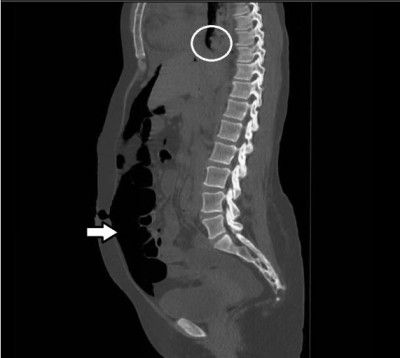- CDC News
- Adult Immunization
- Hepatology
- Rare Disorders
- Pediatric Immunization
- Weight Management
- Screening
- Psychiatry
- Allergy
- Women's Health
- Cardiology
- Pediatrics
- Kidney Disease
- Dermatology
- Endocrinology
- Pain Management
- Gastroenterology
- Geriatrics
- Infectious Disease
- Orthopedics
- Obesity Medicine
- Rheumatology
- Technology
- Oncology
- Nephrology
- Neurology
- Pulmonology
Pneumatosis Cystoides Intestinalis: What’s the Truth?
This radiograph from a 53-year-old woman revealed esophageal stricture with proximal dilatation in addition to pneumoperitoneum. Pneumatosis cystoides intestinalis (PCI) was diagnosed.
This radiograph from a 53-year-old woman revealed esophageal stricture with proximal dilatation in addition to pneumoperitoneum. Pneumatosis cystoides intestinalis (PCI) was diagnosed.

Which statement about PCI is NOT true?
Related Content
